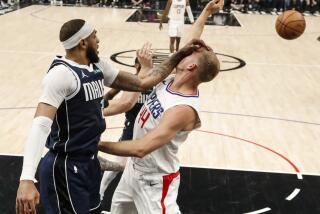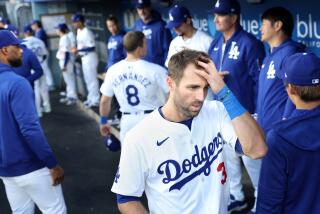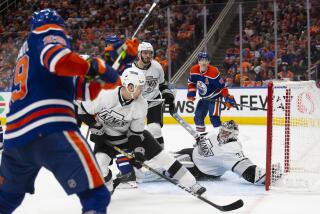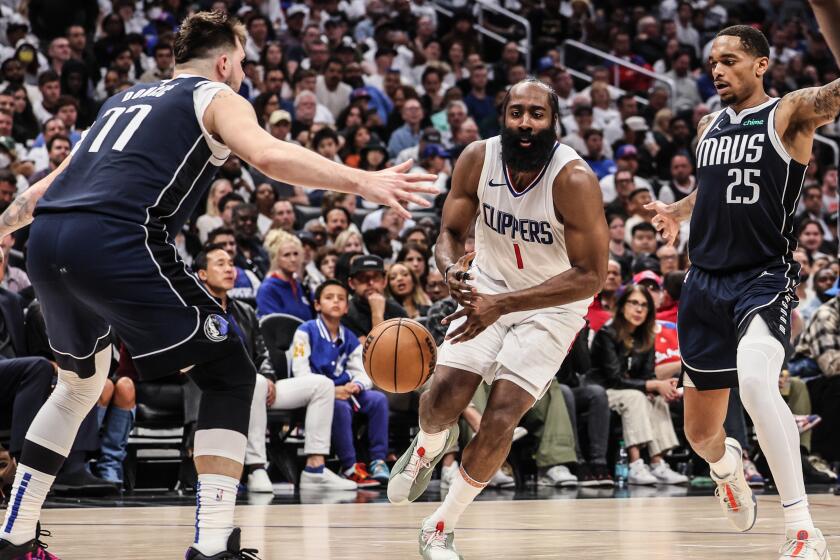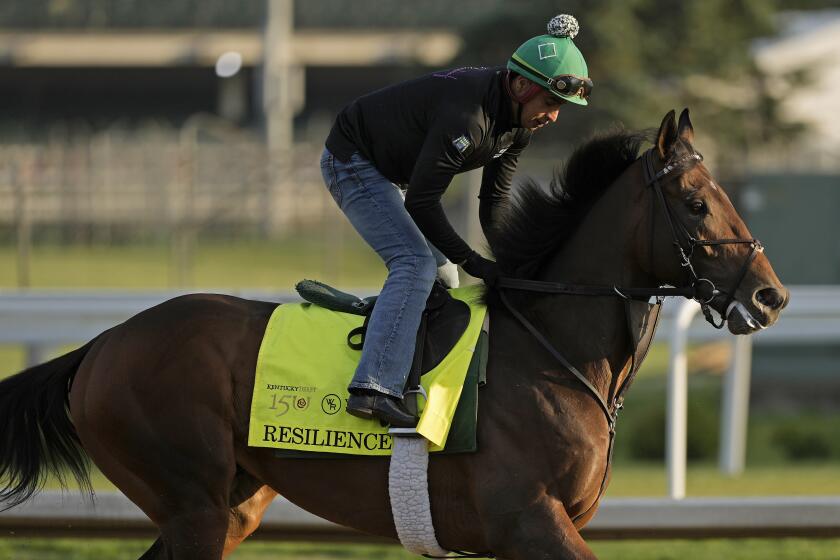Back Then, His Mood Wasn’t Blue
I met Vida Blue nine springs ago, back when the only hard time he had done was in Charlie Finley’s doghouse.
I was a rookie baseball writer discovering that players on teams other than the one you regularly cover have a tendency to view you as an annoyance, or an enemy. I had just come from the Chicago Cubs’ spring training camp, where Bill Buckner rudely rejected an interview request and then-Manager Herman Franks treated me as a finance company thug come to repossess his chewing tobacco.
Next target was Vida Blue, at the Oakland A’s ballpark in Mesa, Ariz. Blue was the subject of controversy with A’s owner Finley, and I wasn’t expecting a warm reception when I introduced myself. But I got one.
“Step into my office,” Blue said, gesturing grandly to a table in the middle of the clubhouse.
If he was merely glad-handing a reporter from a big newspaper, Blue did it with charm and wit. He made himself a friend for life.
He was loose. He grabbed a plastic half-gallon jug of orange juice from a clubhouse cooler and gave it a sharp slap to mix it up. The plastic shattered and he was showered with juice. He laughed. It was all part of the fun.
“I just made up my mind over the winter Vida Blue’s gonna play and have fun,” he said, dismissing his problems with Finley. “It’s a commitment we all should make sooner or later.”
He was serious about having fun. When the A’s traded him to the San Francisco Giants later that spring, Vida Blue blew into San Francisco like a fresh breeze. He almost single-handedly revived the ballclub with his pitching--he had an 18-10 record--and his cheerleading.
He literally reached out to the fans, waving them to action during games, signing autographs, shaking hands. In the world of big league baseball, where most players distance themselves from the unwashed masses, Blue’s behavior was eye-popping stuff.
“He really worked hard to build a relationship with the fans,” says Dave Newhouse, a Bay Area radio personality and Oakland Tribune sports columnist. “And people cared.”
Blue remembered names, even of sportswriters he barely knew and hadn’t seen in a long time. He talked to you , not to your note pad.
He was full of kibitz and con, bravado and jive. He would laugh, and he would get serious and cerebral. Nobody will tell you Vida’s not a bright guy. It looked, after years of turmoil, as if he had found himself. Then, the next season, his commitment to fun got the best of him. Possibly running on cocaine-induced paranoia, Blue threatened to “blow away” a San Francisco writer whose work Vida didn’t like. He talked of using guns and baseball bats on other writers.
I read this stuff in amazement. He was no longer inviting writers into his office. The slide had started. He was traded to Kansas City in 1982 and in ’85 he pleaded guilty to possessing three grams of cocaine. He did 90 days in a federal prison.
He missed the ’84 season. Then, back with San Francisco, he had 8-8 and 10-10 seasons.
Then he quit, and the report later was that he had flunked some drug tests.
Last Monday night, Blue called Newhouse on his phone-in radio show and talked about maybe playing in Japan. Blue said, “I never was into drugs. They were just positive urine tests. I’ll get into all that at the proper time.”
He rambled a lot during his 15-minute call. Newhouse, who admits he’s no drug expert or psychologist, said, “It seems his attitude was that he was calling, but also calling out for help.”
There’s no real moral here. Vida Blue is out there somewhere in the radio waves. Maybe he’s calling for help, maybe he’s just killing time between pitching gigs.
Sympathy? For one thing, I don’t know if Blue needs it or wants it, or if it would do him any good. Maybe he’s out of baseball simply because his fastball got slow. That happens to people who are 37.
If he is back into drugs, public sympathy for drug-abusing sports stars is in fairly short supply these days. Unless you’re a superstar like Dwight Gooden, you’ve just about got to die with a needle in your arm to get a kind word or a decent sized headline.
After Blue was the American League’s Cy Young Award winner and Most Valuable Player in his rookie season, with a 24-8 record and other incredible statistics, he held out the next spring for $100,000, eventually settling for half that. President Richard Nixon, while attending a barbecue, commented: “He has so much talent. Maybe Finley ought to pay. It would be a great tragedy if a young player with all that talent stayed out so long.”
Now Vida isn’t young, but he is out of baseball again, holding out under mysterious circumstances. Not a tragedy, but sad. A good guy--and, in a distant sort of way, a friend--no longer around.
More to Read
Get our high school sports newsletter
Prep Rally is devoted to the SoCal high school sports experience, bringing you scores, stories and a behind-the-scenes look at what makes prep sports so popular.
You may occasionally receive promotional content from the Los Angeles Times.
